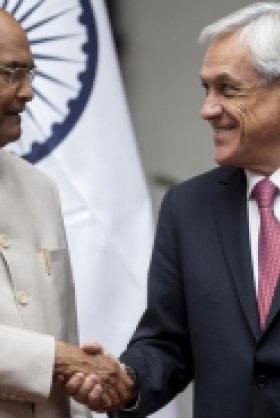Latin America’s Tryst with the Other Asian Giant, India


In a new study for the Latin American Program, Mumbai-based scholar Hari Seshasayee makes the case that India’s greatest contribution to Latin America—and one which sets it apart from China— is its disproportionately higher impact in value-added manufacturing and services. Seshasayee demonstrates multiple ways that India has deepened its engagement with the region in this century. While the dimensions of China’s relationship with Latin America are in a league of their own, he argues that India’s involvement is marked by two key differences:
- While China’s investments are primarily in Latin America’s extractive industries, India invests in value-added sectors such as manufacturing, automobiles, pharmaceuticals, and information technology (IT). Indian auto parts and IT companies employ far more people in the region than their Chinese counterparts, helping the region reduce its centuries-old dependence on commodities;
- India’s relationship with Latin America is founded on principles of economic diplomacy, in which diplomatic missions, trade and investment promotion agencies, and business associations play the important roles. By contrast, the Chinese state has an active role in Latin America policy: investment is often backed by political heft from Beijing and high-level political visits take center stage.
Seshasayee concludes that Latin American countries must change their perception of the old India, a country of snake charmers and sprawling poverty, to that of a global IT giant and a middle class that will soon rival that of the United States.
Author

Advisor to the Foreign Minister of Panama and Asia-Latin America Expert, UNDP

Latin America Program
The Wilson Center’s prestigious Latin America Program provides non-partisan expertise to a broad community of decision makers in the United States and Latin America on critical policy issues facing the Hemisphere. The Program provides insightful and actionable research for policymakers, private sector leaders, journalists, and public intellectuals in the United States and Latin America. To bridge the gap between scholarship and policy action, it fosters new inquiry, sponsors high-level public and private meetings among multiple stakeholders, and explores policy options to improve outcomes for citizens throughout the Americas. Drawing on the Wilson Center’s strength as the nation’s key non-partisan policy forum, the Program serves as a trusted source of analysis and a vital point of contact between the worlds of scholarship and action. Read more

Explore More
Browse Insights & Analysis
Seattle Debacle Presaged the End of the Road for Open Trade

Mexico’s Overhaul of its Antitrust Policy and Enforcement

